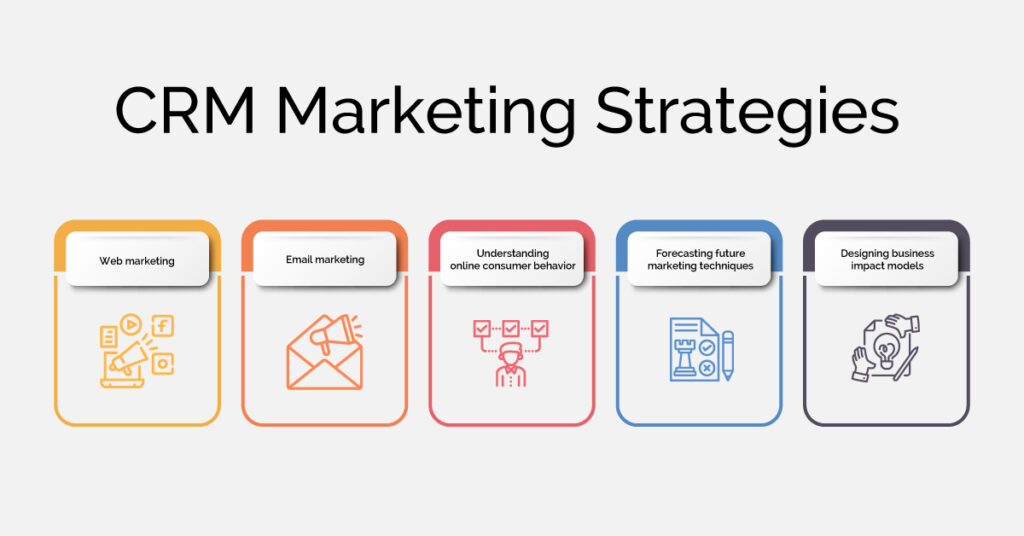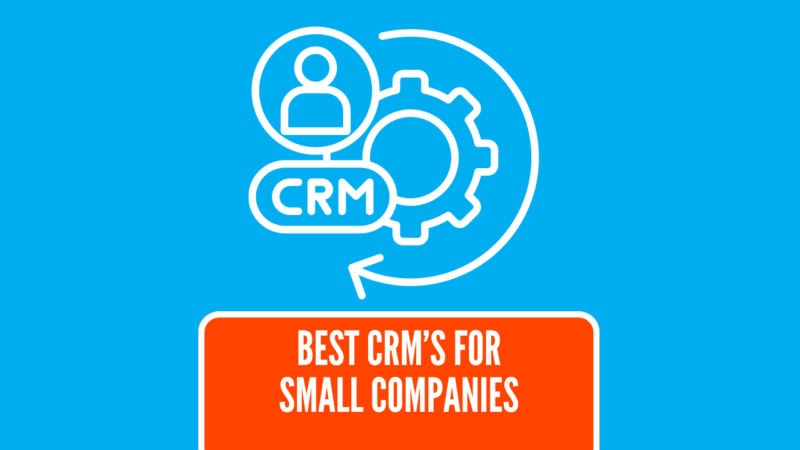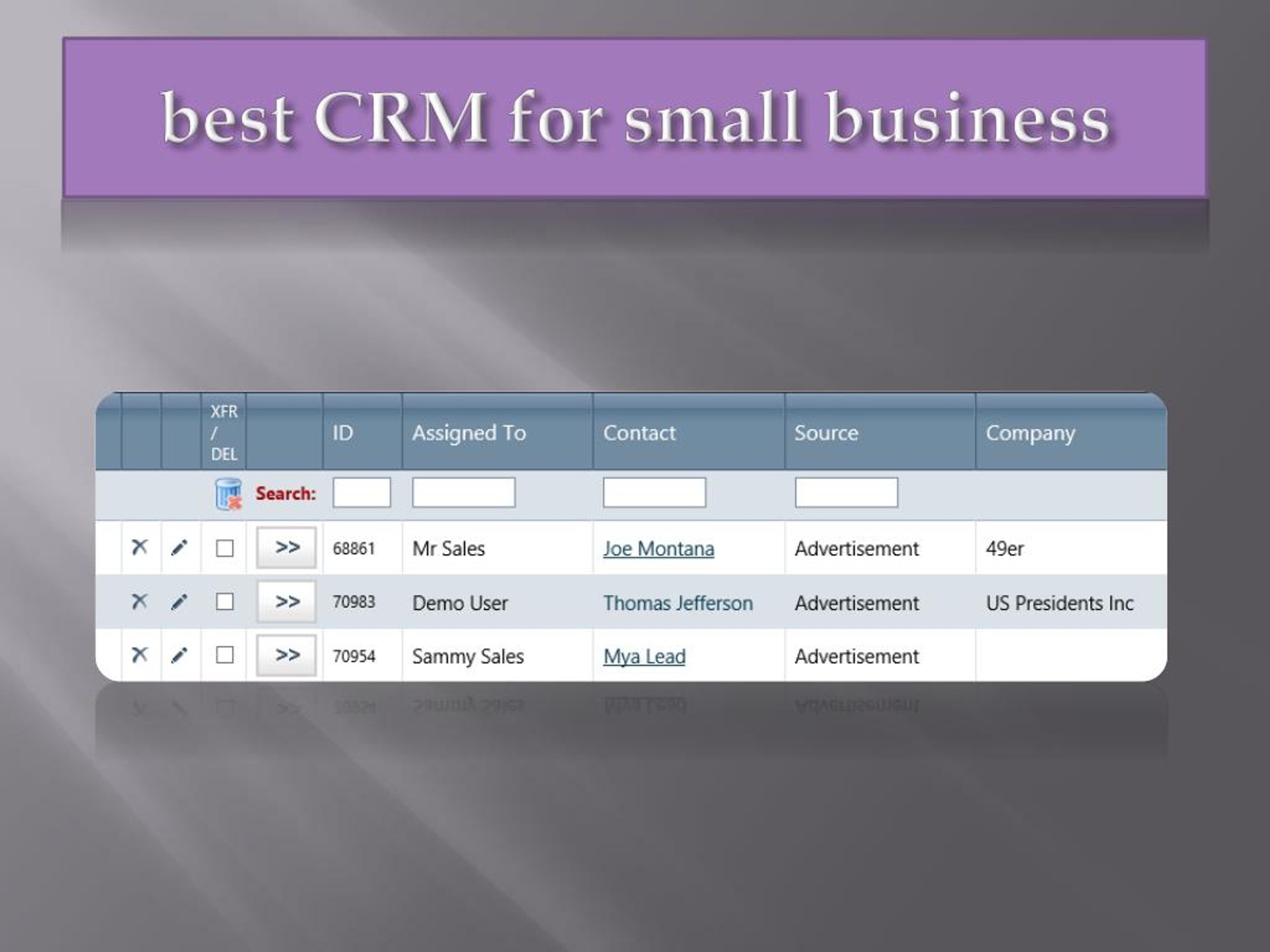Small Business CRM Innovations 2025: Revolutionizing Customer Relationships

Small Business CRM Innovations 2025: Revolutionizing Customer Relationships
The world of customer relationship management (CRM) is constantly evolving. For small businesses, staying ahead of the curve in this area is no longer a luxury; it’s a necessity. The year 2025 is fast approaching, and with it comes a wave of innovations poised to transform how small businesses interact with their customers. This article delves into the most promising CRM innovations on the horizon, offering insights into how they can empower your business to thrive.
The Current Landscape of Small Business CRM
Before we jump into the future, let’s take a quick look at where we are now. Small business CRM has come a long way. Today, it’s about more than just storing contact information. Modern CRM systems help businesses manage sales, marketing, and customer service, all from a single platform. They provide valuable data insights, automate tasks, and improve overall efficiency. However, many small businesses still struggle to fully leverage the potential of their CRM systems.
Common challenges include:
- Cost: The price of entry for some CRM solutions can be prohibitive for small businesses.
- Complexity: Many systems are overly complex, making them difficult to implement and use.
- Integration: Integrating CRM with other business tools can be a hurdle.
- Data Silos: Data often remains scattered across different departments, hindering a unified view of the customer.
These challenges highlight the need for CRM innovations that are affordable, user-friendly, and seamlessly integrated. The innovations of 2025 are designed to address these pain points and offer small businesses a significant competitive advantage.
Key CRM Innovations for Small Businesses in 2025
The following innovations are expected to have the most significant impact on small business CRM by 2025:
1. Artificial Intelligence (AI) and Machine Learning (ML) Enhanced CRM
AI and ML are already making waves in the CRM world, and their influence will only grow stronger. In 2025, expect to see AI-powered CRM systems that offer:
- Predictive Analytics: AI will analyze customer data to predict future behavior, such as which customers are likely to churn or which products they might be interested in. This allows businesses to proactively engage customers and personalize their offerings.
- Automated Task Management: AI will automate routine tasks like data entry, email responses, and scheduling, freeing up employees to focus on more strategic activities.
- Personalized Customer Interactions: AI-powered chatbots and virtual assistants will provide instant, personalized support to customers, 24/7.
- Lead Scoring and Qualification: AI will assess leads based on their likelihood of converting, helping sales teams prioritize their efforts.
The benefits of AI-enhanced CRM are numerous, including improved sales, enhanced customer satisfaction, and increased operational efficiency. Small businesses that embrace AI will be well-positioned to outperform their competitors.
2. Hyper-Personalization and Customer Segmentation
Customers today expect personalized experiences. They want to feel understood and valued by the businesses they interact with. In 2025, CRM systems will enable hyper-personalization, allowing businesses to:
- Segment Customers with Precision: CRM systems will leverage advanced data analytics to segment customers based on a wide range of factors, including demographics, behavior, purchase history, and even emotional sentiment.
- Tailor Marketing Campaigns: Businesses will be able to create highly targeted marketing campaigns that resonate with specific customer segments.
- Personalize Website Experiences: CRM will integrate with website platforms to dynamically personalize content and offers based on individual customer profiles.
- Deliver Contextual Offers: Customers will receive offers and recommendations that are relevant to their current needs and interests.
Hyper-personalization will lead to increased customer engagement, improved conversion rates, and stronger customer loyalty. This level of personalization will become the standard, and businesses that fail to adapt will risk losing customers to those that do.
3. Enhanced Integration and Data Synchronization
Data silos are a major obstacle for many small businesses. In 2025, CRM systems will prioritize seamless integration with other business tools and platforms. This will include:
- Two-Way Synchronization: CRM will seamlessly integrate with marketing automation platforms, e-commerce systems, social media channels, and other essential tools.
- Real-Time Data Updates: Data will be synchronized in real-time, ensuring that all teams have access to the most up-to-date customer information.
- Open APIs: CRM systems will offer open APIs, allowing businesses to easily connect to custom-built applications and third-party integrations.
- Unified Customer View: A single, unified view of the customer will be available across all departments, enabling a more holistic understanding of customer interactions.
Enhanced integration will streamline workflows, improve data accuracy, and provide a more complete picture of the customer journey. This will lead to better decision-making and improved overall performance.
4. Mobile-First CRM Solutions
Mobile devices are essential tools for small businesses, and CRM systems will reflect this. In 2025, expect to see:
- Mobile-Optimized Interfaces: CRM systems will be designed with mobile-first principles, providing a seamless user experience on smartphones and tablets.
- Offline Access: Sales teams and customer service representatives will be able to access and update CRM data even without an internet connection.
- Geolocation Features: CRM systems will use geolocation data to track sales rep activity, identify nearby leads, and provide location-based services to customers.
- Voice-Activated Commands: Users will be able to interact with the CRM system using voice commands, making it easier to update records and access information on the go.
Mobile-first CRM solutions will empower businesses to stay connected with their customers and manage their operations from anywhere, at any time. This will improve productivity and responsiveness.
5. CRM for the Metaverse and Immersive Experiences
The metaverse is emerging as a new frontier for businesses, and CRM will play a key role in this virtual world. In 2025, expect to see:
- CRM Integration with Metaverse Platforms: CRM systems will integrate with virtual reality (VR) and augmented reality (AR) platforms, enabling businesses to create immersive customer experiences.
- Virtual Customer Service: Businesses will provide customer service and support within the metaverse, using virtual assistants and interactive environments.
- Personalized Avatars: Customers will be able to interact with businesses through personalized avatars, creating a more engaging and memorable experience.
- Data-Driven Insights: CRM systems will collect data on customer behavior within the metaverse, providing valuable insights into their preferences and interests.
CRM in the metaverse will offer new opportunities for businesses to connect with their customers, build brand loyalty, and drive sales in the virtual world. This is an area to watch closely as the metaverse continues to evolve.
Choosing the Right CRM System for Your Small Business
Selecting the right CRM system is crucial for the success of your small business. Here are some factors to consider when making your decision:
- Ease of Use: Choose a system that is user-friendly and easy to navigate. The simpler it is, the more likely your team is to adopt it.
- Scalability: Ensure the system can grow with your business. It should be able to handle increasing volumes of data and users.
- Integration Capabilities: Look for a system that integrates seamlessly with your existing business tools.
- Mobile Accessibility: Choose a system with a robust mobile app that allows your team to access and update data on the go.
- Pricing: Consider your budget and choose a system that offers a pricing plan that fits your needs.
- Customer Support: Ensure the vendor provides excellent customer support to help you with any issues that may arise.
- Security: Prioritize a CRM system that prioritizes data security and complies with relevant regulations.
By carefully evaluating your needs and comparing different CRM systems, you can find the perfect solution for your small business.
Preparing for the Future of CRM
The CRM landscape is constantly evolving, and small businesses need to be proactive in adapting to these changes. Here are some steps you can take to prepare for the future of CRM:
- Stay Informed: Keep abreast of the latest CRM trends and innovations. Read industry publications, attend webinars, and follow thought leaders in the field.
- Assess Your Current System: Evaluate your current CRM system and identify areas for improvement.
- Plan for Integration: Develop a plan for integrating your CRM system with other business tools and platforms.
- Invest in Training: Provide your team with the training they need to effectively use your CRM system.
- Embrace AI: Explore how AI can be used to automate tasks, personalize customer interactions, and gain valuable insights.
- Prioritize Data Security: Implement robust security measures to protect your customer data.
- Be Flexible: The CRM landscape is constantly changing, so be prepared to adapt to new technologies and trends.
By taking these steps, you can position your small business for success in the future of CRM.
The Benefits of Embracing CRM Innovations
Adopting the latest CRM innovations can provide a wide range of benefits for small businesses, including:
- Increased Sales: CRM systems can help you identify and nurture leads, close deals faster, and increase your overall sales revenue.
- Improved Customer Satisfaction: Personalized customer experiences, proactive support, and efficient service can lead to higher customer satisfaction.
- Enhanced Customer Loyalty: By building stronger relationships with your customers, you can increase customer loyalty and retention.
- Increased Efficiency: Automation and streamlined workflows can free up your employees to focus on more strategic activities.
- Reduced Costs: Automation and improved efficiency can help you reduce your operational costs.
- Better Decision-Making: Data insights from your CRM system can help you make better decisions about your business.
- Competitive Advantage: By embracing the latest CRM innovations, you can gain a competitive advantage over your rivals.
The benefits of CRM innovations are clear. Small businesses that embrace these changes will be better equipped to thrive in the competitive marketplace.
Real-World Examples of CRM Innovation in Action
To illustrate the impact of CRM innovations, let’s look at some real-world examples:
- A small e-commerce business uses AI-powered chatbots to provide instant customer support, answer frequently asked questions, and guide customers through the purchase process. This has led to a significant increase in customer satisfaction and sales.
- A local marketing agency uses a CRM system to segment its customers based on their interests and demographics. They then create highly targeted marketing campaigns that resonate with each segment. This has resulted in a higher conversion rate and a better return on investment (ROI) for their marketing efforts.
- A construction company uses a mobile-first CRM system to track project progress, manage customer communication, and update project schedules in real-time. This has improved collaboration, reduced errors, and increased project efficiency.
- A retail store uses a CRM system to personalize the in-store experience for its customers. They use customer data to provide personalized recommendations, offer exclusive discounts, and create a more engaging shopping environment. This has led to increased customer loyalty and sales.
These examples demonstrate the power of CRM innovations to transform businesses of all sizes.
Conclusion: The Future is Now
The year 2025 is not far away, and the CRM innovations discussed in this article are poised to revolutionize how small businesses interact with their customers. By embracing AI, hyper-personalization, enhanced integration, mobile-first solutions, and metaverse integration, small businesses can gain a significant competitive advantage. Now is the time to prepare for the future of CRM and position your business for success. By understanding the trends and investing in the right technologies, you can build stronger customer relationships, increase sales, and drive sustainable growth. The future of CRM is now, and the opportunities are limitless.



